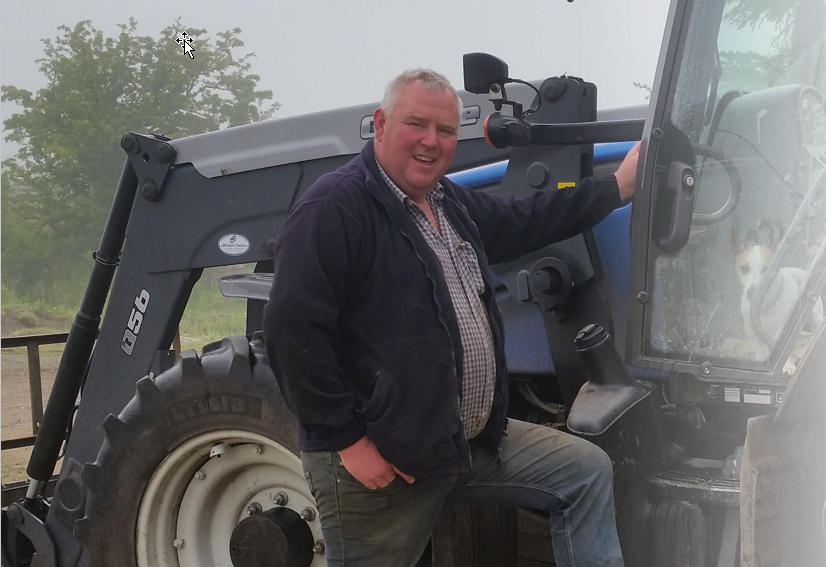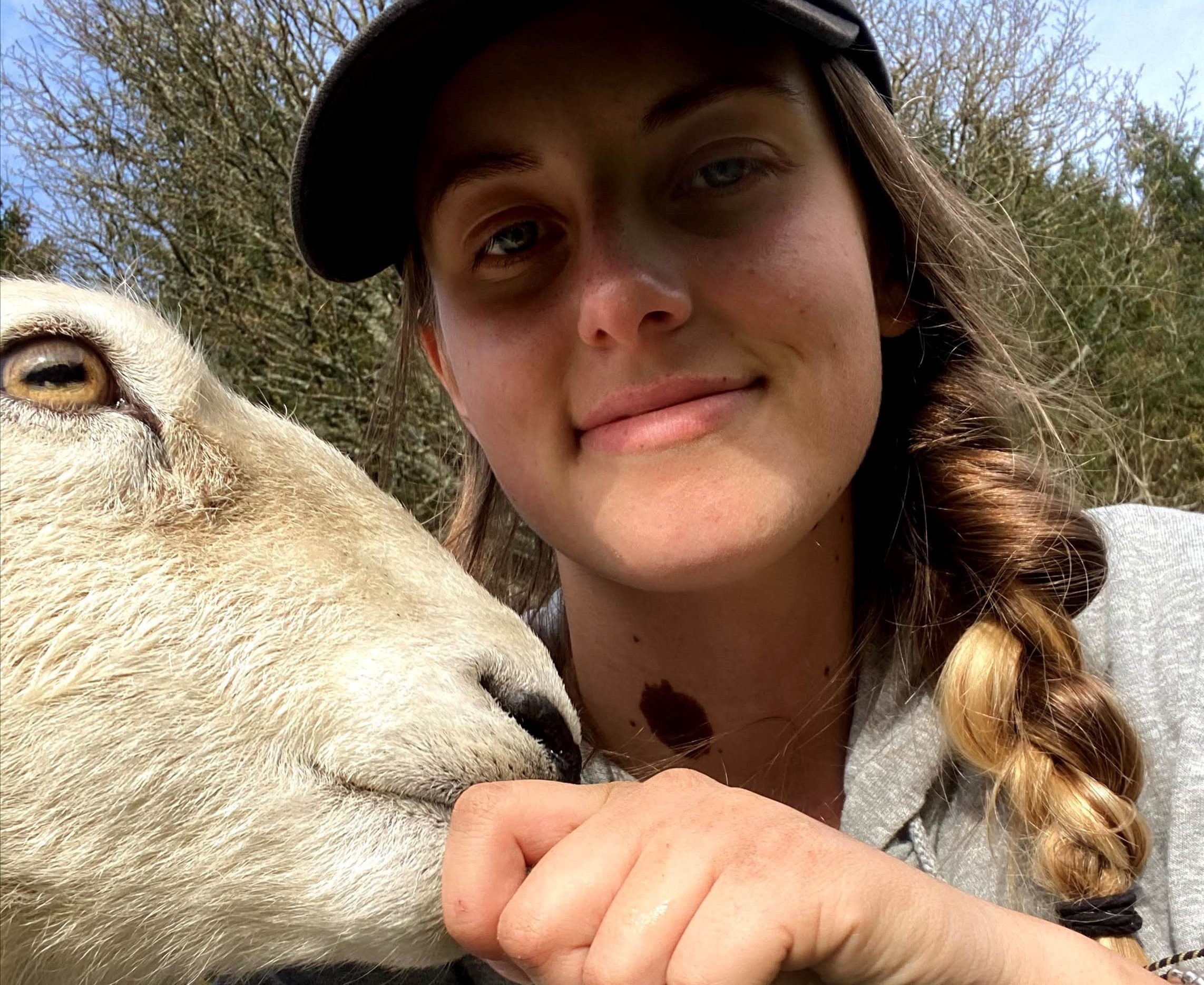

Ballyutoag Farm is situated approximately 8 miles outside the busy city of Belfast; growing up on the farm and working alongside his father ensured that Brian Megahey had a good working knowledge of farming practices from a very young age. In 2014 Brian assumed the role of farm owner following the death of his father.
On leaving school Brian attended the College of Agriculture, Food and Rural Enterprise (CAFRE) where he studied for a National Certificate in Agriculture. On completion of the course Brian returned to the family farm to work on a full time basis. At that juncture the Megahey’s were farming 500 acres with 230 suckler cows and 150 ewes, however, Brian’s career changed direction when his father sold 140 acres and bought a farm supplies business. At this stage Brian worked part-time in the business as well as on the family farm; during this time he gained a lot of knowledge about working in retail, also learning about the complexities of managing 15 staff across the businesses owned by his father.
At the age of 28 years Brian decided to pursue a different career, and gained the HGV license which lead to him purchasing his own truck and travelling across Europe for 5 years.
As a result of the BSE crisis in 1996 the Megahey family liquidated the farm supply business and sold the site for development, diversifying into the waste disposal business, opening an inert landfill site. At this juncture Brian decided to return to Northern Ireland to work alongside his father in the family business, specializing in the operation of diggers and dozers.
Having a desire to return to farming, in 2012 Brian bought some cattle of his own and has been farming ever since. A typical day on the farm for Brian includes the management of all aspects of farm life – feeding and checking the livestock, animal welfare, maintaining the buildings and the financial side of the farm business. Brian stated: “Looking after good stock, selling good stock and watching the seasons come and go are the enjoyable side of farm life, it’s a way of life”.
Farming on a part time basis, Brian also undertakes some digger contract work and runs a training company, offering a wide range of agricultural and construction type training courses. Brian enjoys the mixture in his working life as he believes he can share his knowledge and skills within the forum of training others working in the industry. Brian believes that skills are important to farmers, particularly those skills associated with working with animals, operating machinery, record keeping and financial skills and the ability to be a general handyman.
Situated just outside the small village of Knockloughrim is the Fulton family farm on which David has been working for over 25 years.
On leaving school David applied to and attended the Greenmount Campus of the College of Agriculture, Food and Rural Enterprise where he studied for a National Certificate in Agriculture, before returning in 1991 to work alongside his father on the family farm. Since this time David has also completed various short courses, and attended specific education and training events, including a NVQ Level 4 in Business Management and a College Diploma in General Management working with Pigs.
A typical day starts with feeding and checking his livestock (pigs, sheep and beef cattle), before spending time with his staff, discussing the day’s activities. Purchasing farm supplies, liaison with contractors and dealing with any problems which might arise are also undertaken by David on a regular basis.
David believes that skills are extremely important for the successful running of his farm business, and in particular in his role as farm manager: “Good stockmanship skills are essential as you have to know if there is a problem with any animal. For my particular role I think you also have to have experience in every area of the farm and have good business management skills.”
Looking to the future, David states: “As my father has gotten older I have taken on more responsibility for the farm. Long term, I plan to stay profitable; I am hoping to build a new pig fattening house to let me increase pig weights will which help make the business more efficient.”
David advised that he enjoys every aspect of his work, particularly the lambing season and the breeding/genetics aspect of the pig unit. Asked to give advice to others thinking of a career in the agricultural industry, David states: “Farming is enjoyable, but I would definitely recommend every young person should go to an agricultural college to get training in both practical and business aspects of running a farm business, it’s so important.”


Cockhill Farm is a mainly mountainous farm situated in the outlying rural area of Draperstown, it has been in the Smyth family for over six generations.
Growing up on the family farm, and spending a lot of his time helping his father meant that Trevor Smyth gained a good working knowledge of farming practices from an early age. After completing his GCSE exams at a local Grammar School Trevor knew that the next step for him was attendance at the local agricultural college, where he completed the ‘College Certificate in Agriculture’.
Upon completion of his studies, Trevor acquired full time work in local farm yards/shops while also assisting his father on the family farm. This provided him with a great insight into various working practices and allowed him to widen his knowledge within the farming industry.
Trevor returned to work on the family farm on a full time basis in 2011; a typical day for Trevor includes the management of all aspects of farm life – checking the livestock, animal welfare, buying and selling stock, maintenance of buildings and vehicles, and the financial side of the farm business; in addition to seasonal activities such as silage, topping and shearing.
Trevor assumed responsibility for the care of his three children when his wife Judith was at work, and this he states: “was the hard part, particularly homework!” However, Trevor also states: “farming has allowed me the flexibility to have a bigger part in my children’s’ lives, which I really enjoy.” In addition, Trevor advised that he: “really enjoys spring time, particularly when the cows are calving and the sheep are lambing.”
Trevor believes that skills are important, particularly those skills associated with animal husbandry, time keeping, health and safety, record keeping and financial skills, as is keeping abreast of relevant legislation. He recently completed training on the safe use of pesticides which will allow him to spray his crops himself, saving him money as he won’t have the additional cost of employing a contractor on the farm, while also ensuring he is complying with legislation.
I didn’t know anything about sheep or even farming before I came here, so I would be doing all sorts of things wrong with them at first, like standing in the way whilst trying to move them!
But the things I’ve learned at Borders College, and from other farmers, have meant my knowledge and confidence about working in sheep farming have really improved. I have been really lucky to learn and work with Julie, as she’s one of the top sheepdog trainers and competitors in the world, and she’s been teaching me her dog training technique ‘The Natural Way’.
I have been fortunate to have a great beginning into the industry and I feel like I am ready to be more full-time on farming. I am about to start a new chapter in my life as I begin a new career on a sheep and beef farm. It is the dream opportunity that has arrived at the perfect time for me as I finish up my apprenticeship.
Knowing that my work has value and that I’m making a difference has been a huge boost. My dogs are brilliant therapy, and since starting at the farm with Julie and all the animals, I’ve never been happier, and my confidence in everyday life has really grown. If I have any queries, other farmers are always helpful and it’s nice to feel part of that community.
I wanted to get experience with other animals, so I’ve been working at some other places too and that’s been rewarding as well.
My top careers tip would be that you should say yes to any job or volunteering that you’re offered. Don’t be afraid to put your name out there as there will always be someone willing to help you. Any experience you get, whether good or bad, will help you make up your own mind about your future.
